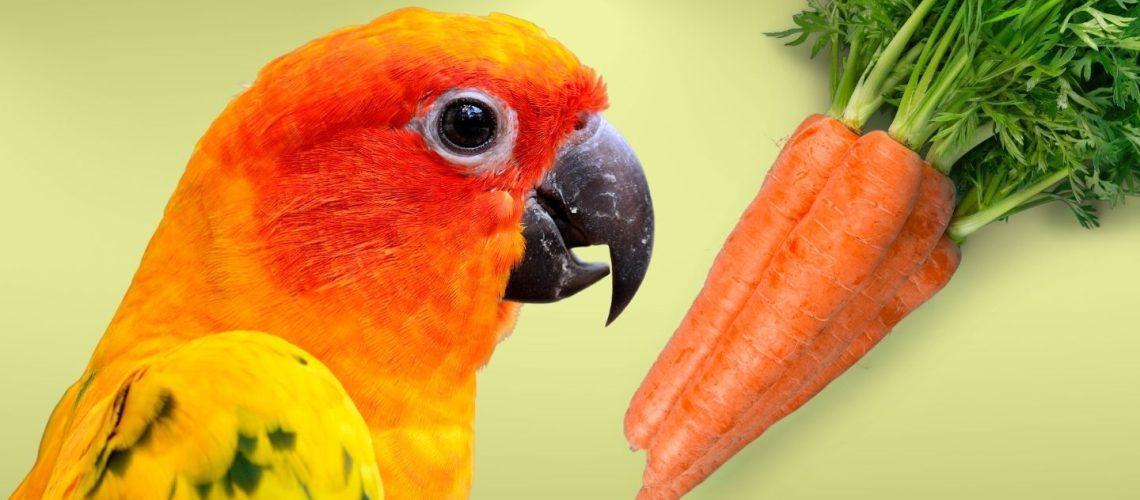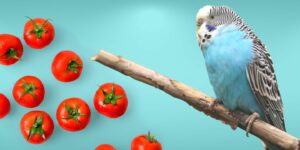Yes, birds can eat carrots. Carrots are a nutritious and safe food for many types of birds, including parakeets, cockatiels, and conures. However, carrots should not be the main component of a bird's diet and should only be fed in moderation.
Nutritional Value of Carrots for Birds
Vitamins and Minerals
Carrots are a good source of vitamins and minerals for birds, including vitamin A, vitamin K, and potassium. They also contain a small amount of protein and fiber. Carrots can help provide birds with a balanced diet and support their overall health.
Antioxidants and Phytonutrients
Carrots are rich in antioxidants and phytonutrients, which are beneficial for maintaining a bird's immune system and overall health. These compounds can help protect birds from various diseases and infections.
Fiber and Protein Content
Carrots provide a modest amount of fiber and protein, which are essential for maintaining a bird's digestive health and muscle development.
How to Prepare Carrots for Birds
Washing and Peeling
Before feeding carrots to your birds, it's essential to wash them thoroughly and remove any dirt or contaminants. Peeling the carrots is optional but can help reduce the risk of pesticide exposure.
Cutting into Small Pieces
When feeding carrots to birds, it is important to cut them into small pieces that are easy for the bird to eat. Whole carrots or large pieces can be difficult for birds to chew and swallow.
Fresh, Cooked or Dehydrated?
Carrots can be fed to birds fresh, cooked, or dehydrated. Fresh carrots can be served raw or lightly steamed. Cooked carrots can be boiled, roasted, or mashed. Dehydrated carrots can be offered as a treat or mixed into a bird's regular seed or pellet diet.
Feeding Carrots to Different Bird Species
Parakeets
Parakeets can safely consume carrots as a treat or supplement to their regular diet. Ensure that the carrots are chopped into small, manageable pieces for your parakeet.
Cockatiels
Cockatiels can also enjoy carrots as a part of their diet. Like parakeets, make sure to cut the carrots into small pieces that are easy for cockatiels to consume.
Conures
Carrots are a suitable addition to a conure's diet, as long as they are fed in moderation and in suitable portion sizes.
Canaries and Finches
Canaries and finches can also benefit from eating carrots. However, they require smaller portion sizes than larger birds due to their diminutive size.
Parrots
Parrots can eat carrots in moderation, as long as they are cut into appropriate sizes for the species of parrot you have.
Health Benefits of Carrots for Birds
Eye Health
The high vitamin A content in carrots can help support and maintain a bird's eye health.
Immune System Support
The antioxidants and phytonutrients found in carrots can help boost a bird's immune system, reducing their susceptibility to infections and diseases.
Digestive Health
The fiber content in carrots can aid in a bird's digestion and promote healthy gut function.
Potential Risks and Precautions
Choking Hazards
As mentioned earlier, always cut carrots into small, manageable pieces to avoid choking hazards for your birds.
Pesticides and Chemicals
Try to select organic carrots whenever possible to reduce the risk of pesticide and chemical exposure. If organic carrots are not available, wash and peel carrots before feeding them to your birds.
Overfeeding and Obesity
Carrots should only be fed in moderation, as overfeeding can lead to obesity and other health problems in birds.
Alternatives to Carrots for Birds
Other Vegetables Birds Can Eat
Birds can also enjoy other vegetables, such as leafy greens, broccoli, cabbage, peas, and corn. Make sure to rotate their vegetables to provide a balanced and varied diet.
Fruits Safe for Birds
Some fruits that can be fed to birds include apples, bananas, berries, oranges, and melons. Keep in mind that fruits should only be offered as a treat and in small portions.
Conclusion
In conclusion, birds can safely eat carrots as part of a balanced diet. However, it is important to feed carrots in moderation and in appropriate portion sizes to ensure the overall health and well-being of your bird. Don't forget to provide a variety of vegetables and fruits to keep their diet varied and nutritious.



